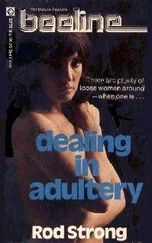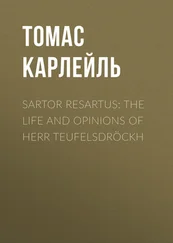Vladimir Nabokov - Strong opinions
Здесь есть возможность читать онлайн «Vladimir Nabokov - Strong opinions» весь текст электронной книги совершенно бесплатно (целиком полную версию без сокращений). В некоторых случаях можно слушать аудио, скачать через торрент в формате fb2 и присутствует краткое содержание. Город: New York, Год выпуска: 1990, Издательство: First Vintage International Edition, Жанр: Классическая проза, на английском языке. Описание произведения, (предисловие) а так же отзывы посетителей доступны на портале библиотеки ЛибКат.
- Название:Strong opinions
- Автор:
- Издательство:First Vintage International Edition
- Жанр:
- Год:1990
- Город:New York
- ISBN:нет данных
- Рейтинг книги:4 / 5. Голосов: 1
-
Избранное:Добавить в избранное
- Отзывы:
-
Ваша оценка:
- 80
- 1
- 2
- 3
- 4
- 5
Strong opinions: краткое содержание, описание и аннотация
Предлагаем к чтению аннотацию, описание, краткое содержание или предисловие (зависит от того, что написал сам автор книги «Strong opinions»). Если вы не нашли необходимую информацию о книге — напишите в комментариях, мы постараемся отыскать её.
Strong opinions — читать онлайн бесплатно полную книгу (весь текст) целиком
Ниже представлен текст книги, разбитый по страницам. Система сохранения места последней прочитанной страницы, позволяет с удобством читать онлайн бесплатно книгу «Strong opinions», без необходимости каждый раз заново искать на чём Вы остановились. Поставьте закладку, и сможете в любой момент перейти на страницу, на которой закончили чтение.
Интервал:
Закладка:
My rendering of gusey kriklivyh karavan tyanulsya k yugu (Four: xli: 11 and beginning of 12) is «the caravan of clamorous geese was tending southward» but, as I note in my commentary, kriklivyh is lexically «screamy»* and the idiomatic tyanulsya conveys a very special blend of meaning, with the sense of «progressing in a given direction» predominating over the simple «stretching» obtainable from pocket dictionaries (see also note to Seven: iv: 14). Mr. Wilson thinks that in his own version of the coming of winter in Four, part of which I quote in my Commentary with charitably italicized errors, he is «almost literally accurate and a good deal more poetically vivid than Nabokov». The «almost» is very lenient since «loudtongued geese» is much too lyrical, and «stretching» fails to bring out the main element of the contextual tyanulsya.
[* In revising my translation for a new edition I have changed «clamorous» to the absolutely exact «cronking». ]
A still funnier sight is Mr. Wilson trying to show me how to translate properly ego loshadka, sneg pochuya, pletyotsya rys'yu kak nibud' (Five: n: 34), which in my literal rendering is «his naggy, having sensed the snow, shambles at something like a trot». Mr. Wilson's own effort, which goes «his poor (?) horse sniffing (?) the snow, attempting (?) a trot, plods (?) through it (?)», besides being a medley of gross mistranslations, is an example of careless English. If, however, we resist the unfair temptation of imagining Mr. Wilson's horse plodding through my trot and, instead, have it plod through Mr. Wilson's snow, we obtain the inept picture of an unfortunate beast of burden laboriously working its way through that snow, whereas in reality Pushkin celebrates relief, not exertions. The peasant is not «rejoicing» or «feeling festive», as paraphrasts have it (not knowing Pushkin's use of torzhestvovat''here and elsewhere), but «celebrating» (the coming of winter), since the snow under the sleigh facilitates the little nag's progress and is especially welcome after a long snowless autumn of muddy ruts and reluctant cart wheels.
Although Mr. Wilson finds my Commentary overdone, he cannot help suggesting three additions. In a ludicrous display of pseudo-scholarship he insinuates that I «seem to think» (I do not, and never did) that the application by the French of the word «goddams» to the English (which 1 do not even discuss) begins in the eighteenth century. He would like me to say that it goes back to the fifteenth century. Why should I? Because he looked it up?
He also would have liked me to mention in connection with the «pensive vampire» (Three: xii: 8) of Polidori's novelette (1819) another variety of vampire which Pushkin alluded to in a poem of 1834 suggested by Merimee's well-known pastiche. But that vampire is the much coarser vurdalak, a lowly graveyard ghoul having nothing to do with the romantic allusion in Canto Three (1824); besides he appeared ten years later (and three years after Pushkin had finished Eugene Onegin) — quite outside the period limiting my interest in vampires.
The most sophisticated suggestion, however, volunteered by Mr. Wilson, concerns the evolution of the adjective krasnyy which «means both red and beautiful». May this not be influenced «by the custom in Old Russia, described in Hakluyt's Voyages, of the peasant women's painting large red spots on their cheeks in order to beautify themselves?» This is a preposterous gloss, somehow reminding one of Freud's explaining a patient's passion for young women by the fact that the poor fellow in his self-abusing boyhood used to admire Mt. Jungfrau from the window of a water closet.
I shall not say much about the paragraph that Mr. Wilson devotes to my notes on prosody. It is simply not worth while. He has skimmed my «tedious and interminable appendix» and has not understood what he managed to glean. From our conversations and correspondence in former years I well know that, like Onegin, he is incapable of comprehending the mechanism of verse — either Russian or English. This being so, he should have refrained from «criticizing» my essay on the subject. With one poke of his stubby pencil he reintroduces the wretched old muddle I take such pains to clear up and fussily puts back the «secondary accents» and «spondees» where I show they do not belong. He makes no attempt to assimilate my terminology, he obstinately ignores the similarities and distinctions I discuss, and indeed I cannot believe he has read more than a few lines of the thing.
My «most serious failure», according to Mr. Wilson, «is one of interpretation». Had he read my commentary with more attention he would have seen that I do not believe in any kind of «interpretation» so that his or my «interpretation» can be neither a failure nor a success. In other words, I do not believe in the old-fashioned, naive, and musty method of human-interest criticism championed by Mr. Wilson that consists of removing the characters from an author's imaginary world to the imaginary, but generally far less plausible, world of the critic who then proceeds to examine these displaced characters as if they were «real people». In my commentary I have given examples and made some innocent fun of such criticism (steering clear, however, of any allusion to Mr. Wilson's extraordinary misconceptions in The Triple Thinkers).
I have also demonstrated the factual effect of Pushkin's characterizations as related to the structure of the poem. There are certain inconsistencies in his treatment of his hero which are especially evident, and in a way especially attractive, in the beginning of Canto Six. In a note to Six: xxviii: 7, I stress the uncanny, dreamlike quality of Onegin's behavior just before and during the duel. It is purely a question of architectonics — not of personal interpretation. My facts are objective and irrefutable. I remain with Pushkin in Pushkin's world. I am not concerned with Onegin's being gentle or cruel, energetic or indolent, kind or unkind («you are simply very kindhearted», says a woman to him quoted in his diary; he is «zloy, unkind», says Mr. Wilson); I am concerned only with Pushkin's overlooking, in the interest of the plot, that Onegin, who according to Pushkin is a punctilious home du monde and an experienced duelist, would hardly choose a servant for second or shoot to kill in the kind of humdrum affair where vanity is amply satisfied by sustaining one's adversary's fire without returning it.
The actual cause of the encounter is however quite plausible in Pushkin: upon finding himself at a huge vulgar feast (Five: xxxi) so unlike the informal party promised him by Lenski (Four: xlix), Onegin is quite right to be furious with his deceitful or scatterbrained young friend, just as Lenski is quite justified in calling him out for flirting with Olga. Onegin accepts the challenge instead of laughing it off as he would have done if Lenski had chosen a less pedantic second. Pushkin stresses the fact that Onegin sincerely loves the youth but that amour propre is sometimes stronger than friendship. That is all. One should stick to that and not try to think up «deep» variations which are not even new; for what Mr. Wilson inflicts upon me, in teaching me how to understand Onegin, is the old solemn nonsense of Onegin's hating and envying Lenski for being capable of idealism, devoted love, ecstatic German romanticism and the like «when he himself is so sterile and empty». Actually, it is just as easy, and just as irrelevant (yet more fashionable — Mr. Wilson is behind the times), to argue that Onegin, not Lenski, is the true idealist, that he loathes Lenski because he perceives in him the tuture tat swinish squire Lenski is doomed to become, and so he raises slowly his pistol and . . , but Lenski in malignant cold blood is also raising his pistol, and God knows who would have killed whom had not the author followed wisely the old rule of sparing one's more interesting character while the novel is still developing. If anybody takes «a mean advantage», as Mr. Wilson absurdly puts it (none of the principals can derive any special «advantage» in a duel a volonte), it is not Onegin, but Pushkin.
Читать дальшеИнтервал:
Закладка:
Похожие книги на «Strong opinions»
Представляем Вашему вниманию похожие книги на «Strong opinions» списком для выбора. Мы отобрали схожую по названию и смыслу литературу в надежде предоставить читателям больше вариантов отыскать новые, интересные, ещё непрочитанные произведения.
Обсуждение, отзывы о книге «Strong opinions» и просто собственные мнения читателей. Оставьте ваши комментарии, напишите, что Вы думаете о произведении, его смысле или главных героях. Укажите что конкретно понравилось, а что нет, и почему Вы так считаете.










